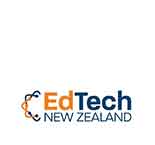Susana Tomaz | STEAM Coordinator Westlake Girls High School | Across School Lead – Pupuke Kāhui Ako at Ministry of Education of New Zealand
Kia whakatōmuri te haere whakamua: ‘I walk backwards into the future with my eyes fixed on my past”
As we rapidly approach the end of another year and look ahead to 2024, eagerly anticipating the impact of a new government on the education sector, I find this last blog for the year to be an opportunity for reflection.
This year’s blogs have offered insights into New Zealand’s educational landscape from the frontline. Issues discussed, such as equality; teacher capability in integrating edtech tools; the evolving role of AI, and the missed opportunity of harnessing ‘New Zealand made’ educational technology highlighted a common thread: the importance of adopting a collaborative ecosystem approach to education. We delved into the rising influence of artificial intelligence in education, touching on its benefits and ethical considerations, signalling the need for proactive conversations in navigating this technological shift to propel us forward, ensuring we are not left behind. I am looking forward to seeing the action plans in the new year for the ambitious 10-year digital strategy, ‘Connected Ako,’ aimed at increasing digital literacy, equity, and eliminating the digital divide in Aotearoa. It couldn’t be more timely.
Last week, I had the privilege of attending the 16th ASEF Classroom Network conference in Slovenia. The focus was on “Leading Change: Digital Transformation in the Era of AI” and it marked the final stage of the hybrid course. I had the opportunity to network with more than 60 teachers from 32 countries and gain further insight into the challenges they are also facing; not that dissimilar to what we are facing in Aotearoa. I also learned from experts worldwide, including Professor John Shawe-Taylor, UNESCO Chair of AI and Director of the International Research Centre on Artificial Intelligence under the auspices of UNESCO (IRCAI) in Slovenia. The conference was a reminder that as AI continues to advance and transform traditional teaching and learning approaches, the potential of its use becomes more apparent, especially in the development of personalised and adaptable methods and accessibility to education, further emphasising the transformative potential of edtech. The digital divide, ethical concerns, and potential inequalities were addressed as well as the need to ensure that the benefits of edtech are accessible to all students. This relies on proactive conversations between the Ministry of Education (MoE), educators, industry and edtech providers that will help us successfully navigate the path to implementation . This must be prioritised in 2024, or we risk our future generations being ill-prepared for the future of work.
Kia mahi tahi ai te waihoe
Working together for future generations
As highlighted in my initial blog in February, one of my key goals for the year and beyond is to foster partnerships with community stakeholders which involves cultivating competencies for learning, teaching, and leading in the digital age, while promoting inclusivity that recognises the strength of culturally diverse backgrounds. Another critical goal of mine is the development of a sustainable framework to support teachers in enhancing their digital competencies. I am excited to have embarked on a Masters in Technological Futures with academyEx to continue working on my goals and bring an ecosystem approach to education, uniting all critical voices.






